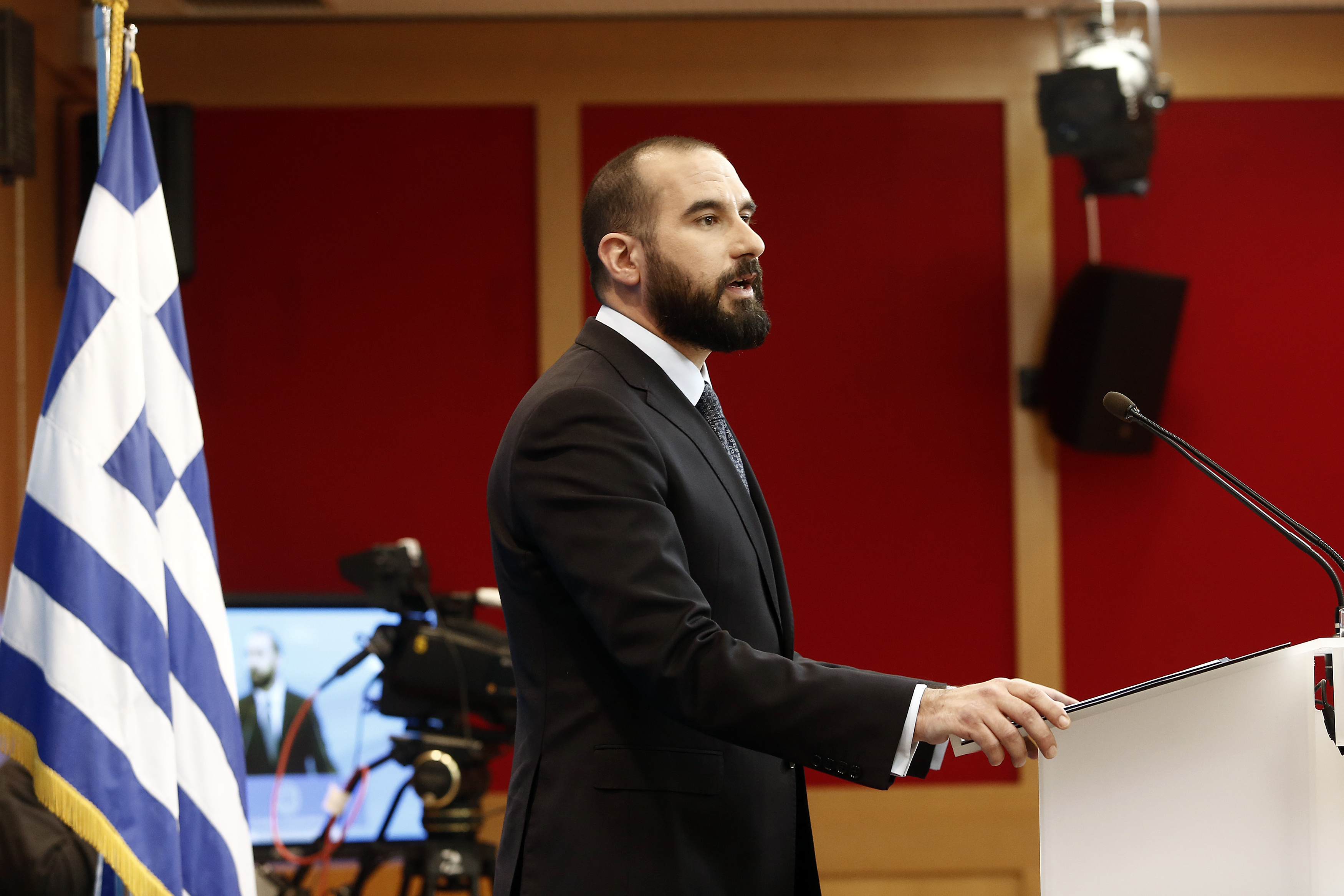Government spokesman Dimitris Tzanakopoulos announced today that Prime Minister Alexis Tsipras will propose a preliminary criminal investigation in parliament to probe potentially unlawful acts by two former PMs and eight ex-ministers in the Novartis scandal.
The committee will examine “the legal and factual issues” with which it will be presented, to probe the allegations and uncover the truth, he said.
New Democracy questions judicial integrity’
At the same time, he attacked opposition New Democracy over its criticism of his meetings about the affair at the Supreme Court, charging that the attacks on him are at the same time attacks on the prosecutor who received him. The spokesman said that he did not discuss the substance of the affair with judicial functionaries.
As for New Democracy charges that Tsipras set up the affair to destroy his enemies, Tzanakopoulos said that this is an international scandal that has triggered probes in 20 countries, and that Athens is cooperating with the US Department of Justice.
The spokesman by way of explanation clarified that Tsipras is “not the leader of the planet” who could set up a global conspiracy.
“Alexis Tsipras is a statesman with international prestige, but that does not mean that he is the leader of the planet, nor does he have magical powers, with which to set up such a plot with the FBI, witnesses, and the American Justice Department,” the spokesman said.
No witch hunts, no leniency
“We will not engage in a witch hunt, but we shall also not show any political and ethical leniency towards whomever is proven to have abused public authority or public funds”.
Tzanakopoulos said that New Democracy’s efforts to depict protected witness as hood-wearing [criminals] is an affront to international conventions and Greek law, which provide for witness protection programmes.
But an ex-minister of New Democracy, former judge Haralambos Athanasiou, maintained that by law the special Corruption Prosecutor’s approval is required for induction in a witness protection programme, a procedure that was not followed with the three protected witnesses in Greece.





